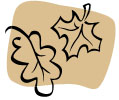
Come join the fun! Participation is for all grades K-5th. Putting together and displaying a project at the fair is a great opportunity to explore your world and develop an early interest in science. Your project does not need to be complicated or expensive, and there are no specific requirements that you must meet (other than the obvious safety-related ones). Your child may work on a project independently, with one or more partners, or may do a project involving their whole class! We just want you there so you can be part of the excitement!
Keeping it simple. Your project could be as basic as bringing in your collection of rocks. Or, if you’re interested in dinosaurs, make a diorama or model of your favorite dinosaur in its natural environment. If you like, feel free to do a project from one of the science kits available in many stores. Of course if you’re ambitious, you could actually do an investigation using the scientific method.
Be safe. Do not use any potentially dangerous materials without adult supervision, and do not harm any people or animals during your experiments. You may not bring any animals or dangerous materials to school as part of your display.
Getting started. To get started, you may want to visit our page to help you choose a topic. Try to pick a topic that you’re really interested in. Once you have a topic area, take a look at the list below of the different project types. You aren’t limited to choosing from these, but they may give you some ideas.

Collections. Do you collect something? Bring in your collection and show it off! Use the science fair as an opportunity to learn something more about the items in your collection, and share your newfound knowledge with the world.

Apparatus. Is there a particular piece of scientific equipment or apparatus that has always fascinated you? Like maybe a microscope or a laser? Study up on how it works, and then explain it to your visitors on a project board.

Demonstration. You can demonstrate a scientific principle or show a trick that takes advantage of science. For example, you could build a model volcano, or an electrical circuit with a battery, switch, and a motor. Boxed kits are often a good source of ideas for these kinds of projects.

Research. There are some areas of science that may be nearly impossible for you to explore or investigate directly, such as astronomy or particle physics. But that doesn’t mean you can’t do a project in this area. Use books and the internet to learn about it, and then present your discoveries to your visitors.

Investigation. An investigation is where you ask a question about the world around you, form a hypothesis (a prediction), and then apply the scientific method to gather data and ultimately prove or disprove your hypothesis.